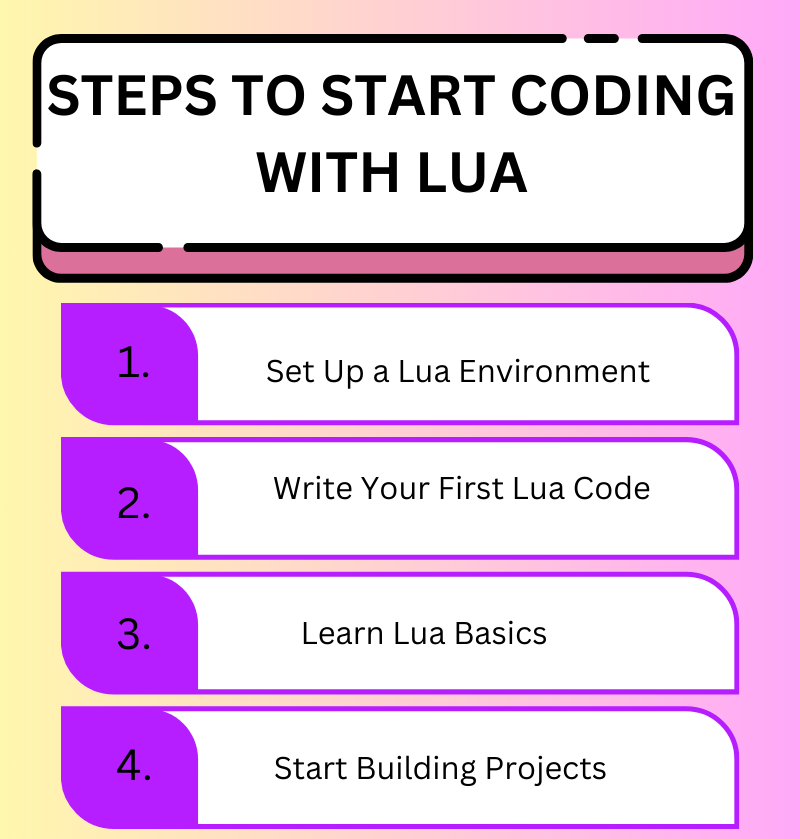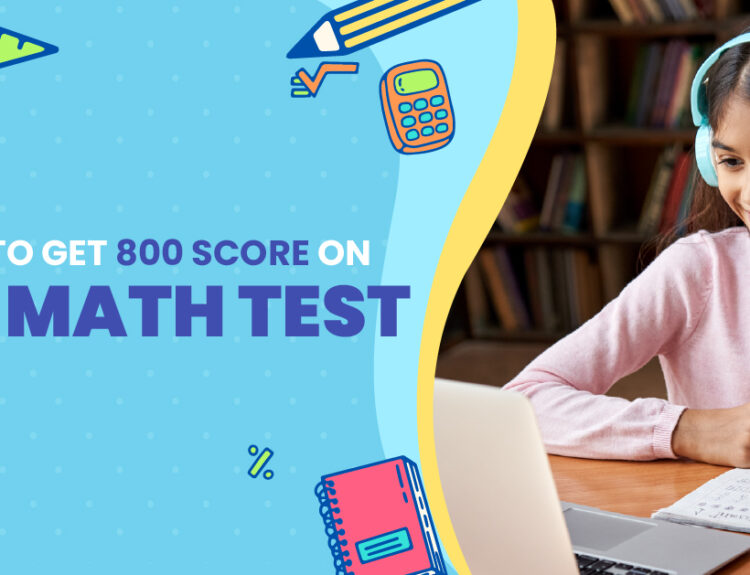In today’s world, coding has become an essential skill, opening up endless opportunities for creativity and problem-solving. Lua, a powerful yet beginner-friendly programming language, is a great place for kids to start their coding journey. This guide will walk you through the basics of Lua, show how kids can use it to make fun projects, and provide tips for staying motivated along the way!
What is Lua?
Lua (pronounced “LOO-ah”) is a lightweight, easy-to-learn programming language commonly used in game development, web applications, and robotics. It’s especially popular in gaming platforms like Roblox, where many kids might already be familiar with it. Lua’s syntax (the set of rules for writing code) is simple and approachable, making it ideal for beginners.
Why Choose Lua for Kids?
Lua’s simplicity and versatility make it perfect for kids who want to start coding. Here’s why:
- Easy to Read and Write: Lua’s syntax is clear and simple, so kids won’t get lost in complicated coding structures.
- Used in Popular Games: Games like Roblox and Angry Birds use Lua, making it relatable and exciting for kids.
- Encourages Creativity: With Lua, kids can bring their own ideas to life, from basic games to animations and beyond.
- Widely Used in STEM: Lua’s relevance in fields like game design, robotics, and automation gives kids a useful foundation for future STEM careers.

Getting Started with Lua
Here’s a simple step-by-step approach for kids to start coding with Lua:

Recommended Reading: Lua Coding Classes for Kids
Step 1: Set Up a Lua Environment
To write and test Lua code, you’ll need an environment where you can code and run your scripts. For beginners, here are some options:
- Roblox Studio: This free platform allows kids to create and code games in Lua.
- Lua.org: The official Lua website provides a downloadable interpreter to write Lua code.
- Online Lua Editors: Websites like Repl.it and TutorialsPoint offer online Lua editors where kids can start coding right away.
Step 2: Write Your First Lua Code
In Lua, writing code is easy! Start with something simple, like printing a message:
print(“Hello, World!”)
When you run this code, “Hello, World!” will appear on the screen. This may seem simple, but it’s the first step in understanding how code produces output.
Step 3: Learn Lua Basics
Here are some key concepts kids will encounter as they learn Lua:
Variables: Variables are like containers that store information. For example:
local myName = “Alex”
print(“Hello, ” .. myName)
Loops: Loops let you repeat actions without writing the same code repeatedly.
for i = 1, 5 do
print(“This is line number ” .. i)
end
Conditionals: These help the code make decisions based on certain conditions.
local age = 10
if age >= 13 then
print(“You are a teenager!”)
else
print(“You are still a kid!”)
end
Functions: Functions are reusable sections of code. Here’s an example:
function greet(name)
print(“Hello, ” .. name)
end
greet(“Alex”)
Step 4: Start Building Projects
Once they have the basics, kids can start with simple Lua projects, like a virtual pet or a small interactive game. These projects not only reinforce learning but also make coding fun and engaging.
Tips for Success in Lua Coding
Learning to code is a journey, so here are some tips to keep things interesting:

- Take Breaks: Encourage kids to take short breaks if they get stuck. Coding can be challenging, but persistence is key!
- Practice Regularly: Coding is a skill that gets better with practice. Set aside regular times for coding.
- Explore and Experiment: Kids should feel free to change things and see what happens—that’s how they learn.
- Join a Coding Community: Whether through online forums, local workshops, or programs like Moonpreneur, coding communities provide support, feedback, and new ideas.
Fun Projects to Try with Lua
Starting with Lua can be more exciting if you have a few hands-on projects. Here’s a list of beginner to advanced ideas that will help you understand Lua better and see its real-world applications.
table {
width: 100%;
border-collapse: collapse;
}
th, td {
padding: 12px;
text-align: left;
border: 1px solid #ddd;
}
th {
background-color: #f2f2f2;
}
| Project | Explanation | Complexity |
|---|---|---|
| Basic Calculator | A straightforward project to understand Lua’s basic arithmetic functions and user input. | Beginner |
| Adventure Game | A beginner-friendly way to learn game design fundamentals, including variables, control flow, and player choices. | Intermediate |
| Web Scraping | Teaches data extraction techniques from websites, useful for automation and data analysis in Lua. | Advanced |
| Guess the Number Game | This simple guessing game introduces basic logic, loops, and random number generation. | Beginner |
| Simple Drawing App | A creative project for users to draw shapes, teaching Lua scripting in a visual environment. | Intermediate |
| Interactive Story | A narrative project that enhances understanding of decision-making structures in Lua by creating story branches and multiple endings. | Intermediate |
table {
font-family: arial, sans-serif;
border-collapse: collapse;
width: 100%;
}
th{background-color: #21618C;color:#fff;}
td, th {
border: 1px solid #000;
text-align: center;
padding: 8px;
}
tr:nth-child(odd) {
background-color: #eeeeee;
}
Some Gaming Applications of Lua
- World of Warcraft
- Angry Birds
- Roblox
- SimCity 4
- Warframe
- CRYENGINE
- Garry’s Mod
- Payday 2
- Phantasy Star Online 2
- Dota 2
- Crysis
Lua is versatile, extending beyond traditional programming. You can apply Lua skills in fields like robotics, bioinformatics, and even AI, making it a great foundation for future tech projects.
Recommended Reading: Lua vs Python – What are the Differences?
Conclusion
Lua is a fantastic language for kids who are new to coding. With its simple syntax and easy-to-understand basics, kids can jump into fun projects quickly. By joining coding classes for kids, they can gain valuable skills that are useful in game development, robotics, and everyday problem-solving.
Moonpreneur is on a mission to disrupt traditional education and future-proof the next generation with holistic learning solutions. Its Innovator Program is building tomorrow’s workforce by training students in AI/ML, Robotics, Coding, IoT, and Apps, enabling entrepreneurship through experiential learning.
FAQ’s:
1. What makes Lua different from other coding languages?
Ans: Lua is lightweight, fast, and very flexible. It’s popular for embedding in games and applications, making it ideal for learners who want to understand how coding connects to real-world tech. Its beginner-friendly syntax makes it a great starting language for coding basics, providing a comfortable and confident learning experience for beginners.
2. Is Lua good for kids and beginners who want to learn coding?
Ans: Absolutely! Lua’s simple syntax and readability make it perfect for beginners, especially kids. Since it’s used in popular platforms like Roblox, it empowers kids to learn coding concepts in a way that’s engaging and visual, boosting their confidence and capability.
3. What kinds of projects can kids build with Lua?
Ans: Lua is versatile, so kids can start with simple projects like calculators or text-based adventure games and move up to more complex projects like AI bots and mini-games. It’s a fantastic choice for young learners who want to see quick, interactive results.
4. Why is Lua often used in game development?
Ans: Lua’s speed, low memory use, and ease of embedding make it popular for game development. It allows for rapid prototyping, which is the quick creation of a preliminary version of a game, and works well with game engines like Roblox and Corona SDK, making it a top choice for building interactive elements without slowing games down.
5. Can Lua be used in robotics or AI?
Ans: Yes, Lua’s adaptability makes it worthwhile in fields like robotics and AI, especially where low resource use is needed. Kids and beginners often use Lua to build simple robots or automation projects, making it a fun and engaging way to learn about AI in a hands-on way, sparking excitement and motivation.
The post Beginner’s Guide to Lua Coding for Kids appeared first on Moonpreneur.
Gaming Center
A gaming center is a dedicated space where people come together to play video games, whether on PCs, consoles, or arcade machines. These centers can offer a range of services, from casual gaming sessions to competitive tournaments.



